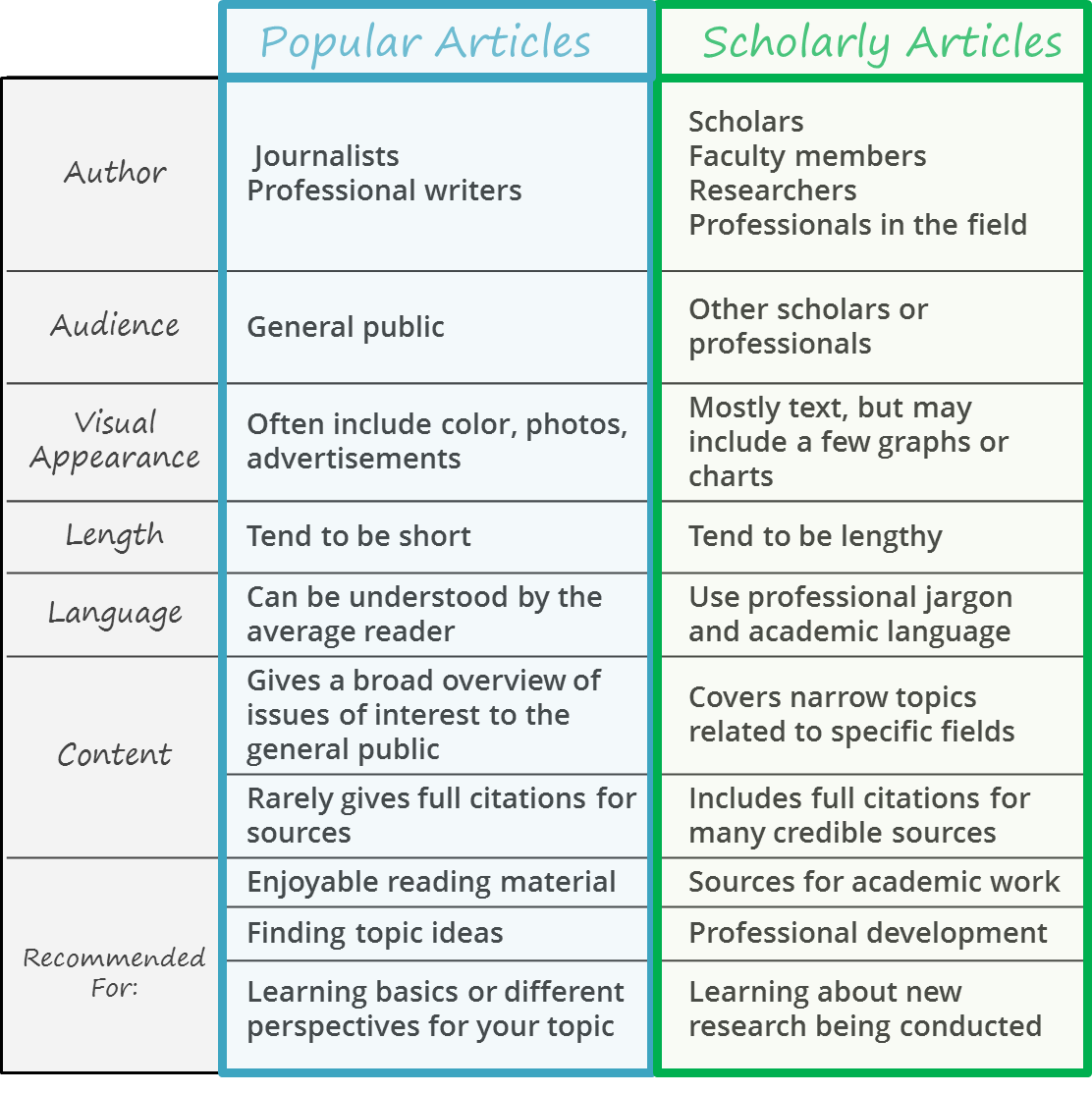

Scholarly & Popular Articles by adstarkel. Used under CC BY-NC-SA 2.0.
Finding Scholarly/Academic Articles
To locate scholarly/academic articles, your best bet is to look in one of our databases or use WorldCat Discovery and limit your search to articles. You will likely find that there are LOTS of popular sources in with the academic ones, even within our databases. Use the Peer-Review Limiter to your advantage. This option is normally located in the left column; you can see screenshots of this option from WorldCat Discovery (left) and our EBSCO databases (right).


This will limit your search to publications that are most scholarly/academic. It does not necessarily filter to include publications that go through a strict peer-review process. It also does not apply the filter at the article level; occasionally it will allows articles that are not scholarly/academic to come through (for example, an editorial opinion piece can be published in a scholarly journal but the article itself is not scholarly).
If you have questions about whether or not a source is scholarly/academic, ask your professor or a librarian!
![]()

Practice your CRAP Skills!
Use the C.R.A.A.P Test to determine the quality of the information you are using. The test can be applied to all types of information: journal & magazine articles; books & book chapters, websites, blogs, reports, etc.

When was the information published or posted?
Do you need historical or current information?
Has this information been revised or changed since it was first released?
BOTTOM LINE: Does this offer appropriately current or historical information?
Image: Bummer by Nick Harris1. Used under CC BY-ND
 Does the information help you accomplish the purpose of your work/paper? Does this easily relate to your topic?
Does the information help you accomplish the purpose of your work/paper? Does this easily relate to your topic?
Does this source meet all your information needs or assignment requirements?
Is this source at an appropriate level for your intended audience?
Have you looked at a variety of sources? Why is this source better than others?
BOTTOM LINE: Is this a source that adds value to your work? Why is it worth including?
Image: Confused by CollegeDegrees360. Used under CC BY-SA 2.0

Who is the author? Who is the publisher?
BOTTOM LINE: Can you trust this author and publisher to know what they're talking about?
Image: [Man with Cameras] by i k o. Used under CC BY-NC-SA 2.0
Is this information correct? Reliable?
Are sources listed? Cited within the text?

If the source conducted its own original research:
BOTTOM LINE: Can you trust that this information is true?
Image: Darts by Richard_of_England. Used under CC BY 2.0
 What is the purpose of this information source?
What is the purpose of this information source?
Is the information fact, opinion, or propoganda?
Do the authors/publishers make their intentions clear?
Is there bias - political, cultural, religious, ideological, personal, etc?
BOTTOM LINE: Is this source objective and impartial, or is it influenced by bias or hidden agendas?
Image: "Is your trip necessary?" by Richard Masoner / Cyclelicious.Used under CC BY-SA 2.0.
Information Timeline Graphic by adstarkel. Used under CC BY-NC-SA 2.0
Library Hours
Study Rooms
My Library Account
Library Website